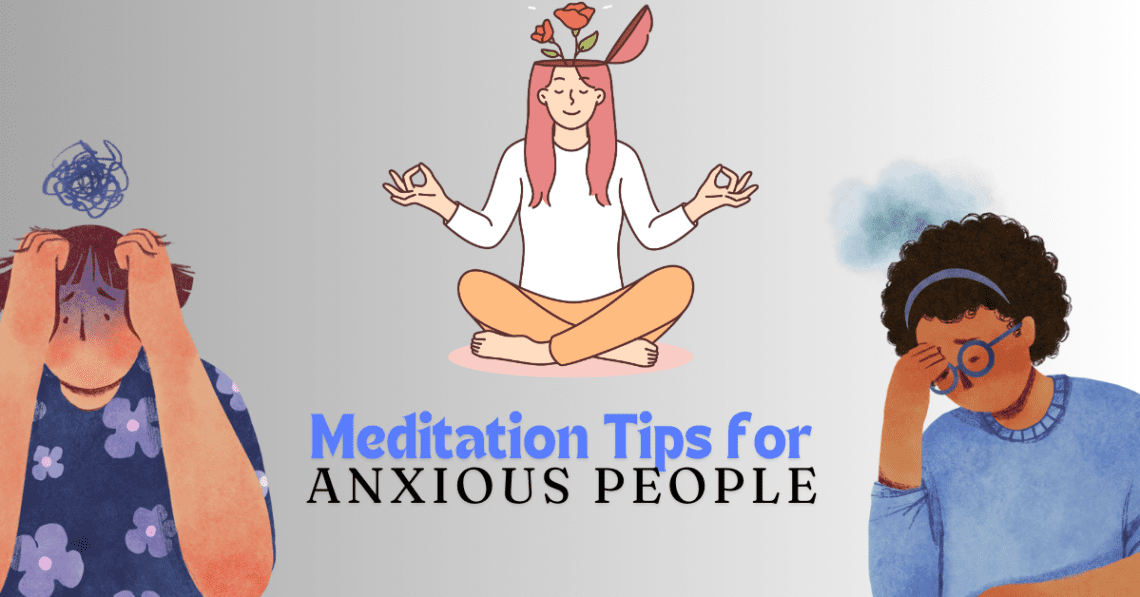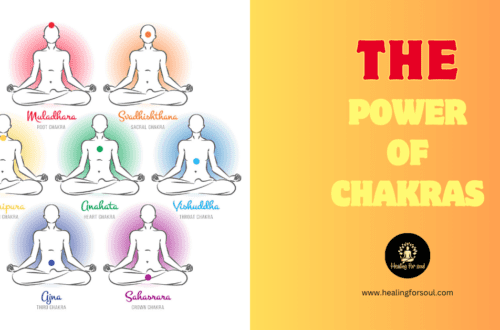Table of Contents
Introduction
Anxiety affects millions of people worldwide, often leading to significant disruptions in daily life. According to the Anxiety and Depression Association of America, anxiety disorders are the most common mental illness in the U.S., affecting 40 million adults every year. Amid this widespread struggle, meditation emerges as a beacon of hope. Many have found solace in the simple, yet profound practice of meditation, reporting significant reductions in their anxiety symptoms.
Meditation can be a powerful tool for managing anxiety. This article will delve into the benefits of meditation for the anxious, explore various meditation techniques, and provide practical tips for incorporating meditation into daily life.
Understanding Anxiety
What is anxiety?
Anxiety is more than just occasional worry or fear. It’s a persistent condition characterized by excessive, often irrational fears and worries. Anxiety disorders encompass various conditions such as generalized anxiety disorder (GAD), panic disorder, social anxiety disorder, and specific phobias. Symptoms can include restlessness, fatigue, concentration problems, irritability, muscle tension, and sleep disturbances.
The impact of anxiety
The impact of anxiety can be profound, affecting an individual physically, emotionally, and socially. Physically, anxiety can manifest as headaches, digestive issues, and an increased heart rate. Emotionally, it can lead to constant worry, feelings of dread, and irritability. Socially, anxiety can isolate individuals, making social interactions and maintaining relationships challenging.
The role of the mind in anxiety
The mind plays a crucial role in the development and perpetuation of anxiety. Negative thought patterns, such as catastrophizing and overgeneralizing, can exacerbate anxiety symptoms. Meditation can help by promoting mindfulness and altering these harmful thought patterns. By training the mind to focus on the present moment, meditation reduces the influence of anxiety-inducing thoughts.
The Science Behind Meditation and Anxiety
How meditation works
Meditation works by inducing a state of relaxation and fostering a sense of inner peace. Physiologically, it activates the parasympathetic nervous system, which counters the fight-or-flight response associated with anxiety. Psychologically, meditation helps individuals detach from their anxious thoughts, gaining a clearer perspective and reducing overall stress levels.
Research findings
Numerous studies have highlighted the effectiveness of meditation in reducing anxiety. A landmark study published in the Journal of Clinical Psychology found that mindfulness meditation significantly reduced anxiety symptoms in participants. Another study in JAMA Internal Medicine reported that meditation programs can improve anxiety, depression, and pain.
Key neurotransmitters
Neurotransmitters like serotonin and dopamine play a vital role in regulating mood and anxiety. Meditation has been shown to increase the production of these neurotransmitters, enhancing feelings of well-being and reducing anxiety. Additionally, meditation lowers cortisol levels, a hormone associated with stress, further contributing to its anxiolytic effects.
Different Meditation Techniques for Anxiety
Mindfulness meditation
Mindfulness meditation involves paying attention to the present moment without judgment. By focusing on the breath, bodily sensations, or sounds, practitioners can distance themselves from anxious thoughts. Studies have shown that mindfulness meditation reduces symptoms of anxiety by enhancing self-awareness and emotional regulation.
Breathing exercises
Breathing exercises, such as deep breathing and diaphragmatic breathing, are powerful tools for managing anxiety. These exercises activate the body’s relaxation response, reducing heart rate and blood pressure. Practicing deep breathing for a few minutes daily can significantly alleviate anxiety symptoms.
Guided meditation
Guided meditation involves following a narrator’s instructions to achieve relaxation and focus. This form of meditation is especially beneficial for beginners or those who find it difficult to meditate independently. Guided meditations can be found in various formats, including apps, audio recordings, and videos, making them easily accessible.
Body scan meditation
Body scan meditation involves mentally scanning the body for areas of tension and consciously relaxing those areas. This practice enhances body awareness and promotes relaxation. By systematically focusing on different body parts, practitioners can release physical tension associated with anxiety.
Incorporating Meditation into Daily Life
Setting aside time
Finding time for meditation in a busy schedule can be challenging but is crucial for reaping its benefits. Start with just a few minutes each day and gradually increase the duration as you become more comfortable with the practice. Consistency is more important than duration, so aim for regular, short sessions.
Creating a meditation space
Having a dedicated meditation space can enhance the practice. Choose a quiet, comfortable area where you won’t be disturbed. This space should be free of distractions and should evoke a sense of calm. Personalize it with items that promote relaxation, such as candles, cushions, or calming artwork.
Overcoming challenges
Common obstacles to meditation include restlessness, impatience, and doubt. Address these challenges by acknowledging them without judgment and gently bringing your focus back to the meditation practice. Remember, it’s normal to experience difficulties, and perseverance is key to overcoming them.
Consistency is key
Regular meditation practice is essential for long-term benefits. Set a routine and stick to it, even on busy days. Over time, meditation can become a habit that seamlessly integrates into your daily life, providing ongoing support for managing anxiety.
Additional Tips for Managing Anxiety
Combining meditation with other techniques
Meditation can be complemented by other techniques such as yoga, exercise, and therapy. Yoga combines physical postures with mindfulness and deep breathing, providing a holistic approach to anxiety management. Regular exercise releases endorphins, which improve mood and reduce stress. Therapy offers professional guidance and support, helping individuals address the root causes of their anxiety.
Healthy lifestyle habits
Adopting healthy lifestyle habits can significantly reduce anxiety. A balanced diet, adequate sleep, and effective stress management are crucial. Foods rich in omega-3 fatty acids, magnesium, and vitamins B and D can support brain health and reduce anxiety symptoms. Prioritize sleep by maintaining a regular sleep schedule and creating a relaxing bedtime routine.
Seeking professional help
While meditation and lifestyle changes can be highly effective, professional help may be necessary for severe or persistent anxiety. Therapies such as cognitive-behavioral therapy (CBT) and medications can provide significant relief. Don’t hesitate to seek help from a mental health professional if your anxiety is overwhelming or unmanageable.
Conclusion
Meditation offers a multitude of benefits for those struggling with anxiety. From reducing symptoms to promoting overall well-being, it’s a valuable tool for managing anxiety. Start your meditation journey today and experience the profound impact it can have on your life. Remember, consistency and patience are key, and support is always available if needed. Embrace meditation as a path to a calmer, more centered self.
FAQs
How long should I meditate to see results?
- While even a few minutes of meditation can be beneficial, most studies suggest that 10-20 minutes daily can significantly reduce anxiety symptoms.
Can meditation cure anxiety?
- Meditation is not a cure for anxiety but a powerful tool for managing and reducing symptoms. It works best when combined with other treatments and healthy lifestyle habits.
Is it normal to feel more anxious when starting meditation?
- Yes, it’s normal to feel more aware of anxious thoughts initially. This awareness is the first step in addressing and reducing anxiety through meditation.
Can children benefit from meditation for anxiety?
- Absolutely. Meditation can be adapted for children and can help them manage stress, improve focus, and foster emotional resilience.
What type of meditation is best for anxiety?
- Different types of meditation can be effective, including mindfulness, guided, and body scan meditations. Experiment with various techniques to find what works best for you.
How can I stay motivated to meditate regularly?
- Set realistic goals, create a pleasant meditation space, and integrate meditation into your daily routine. Remember the benefits and how meditation positively impacts your well-being.







